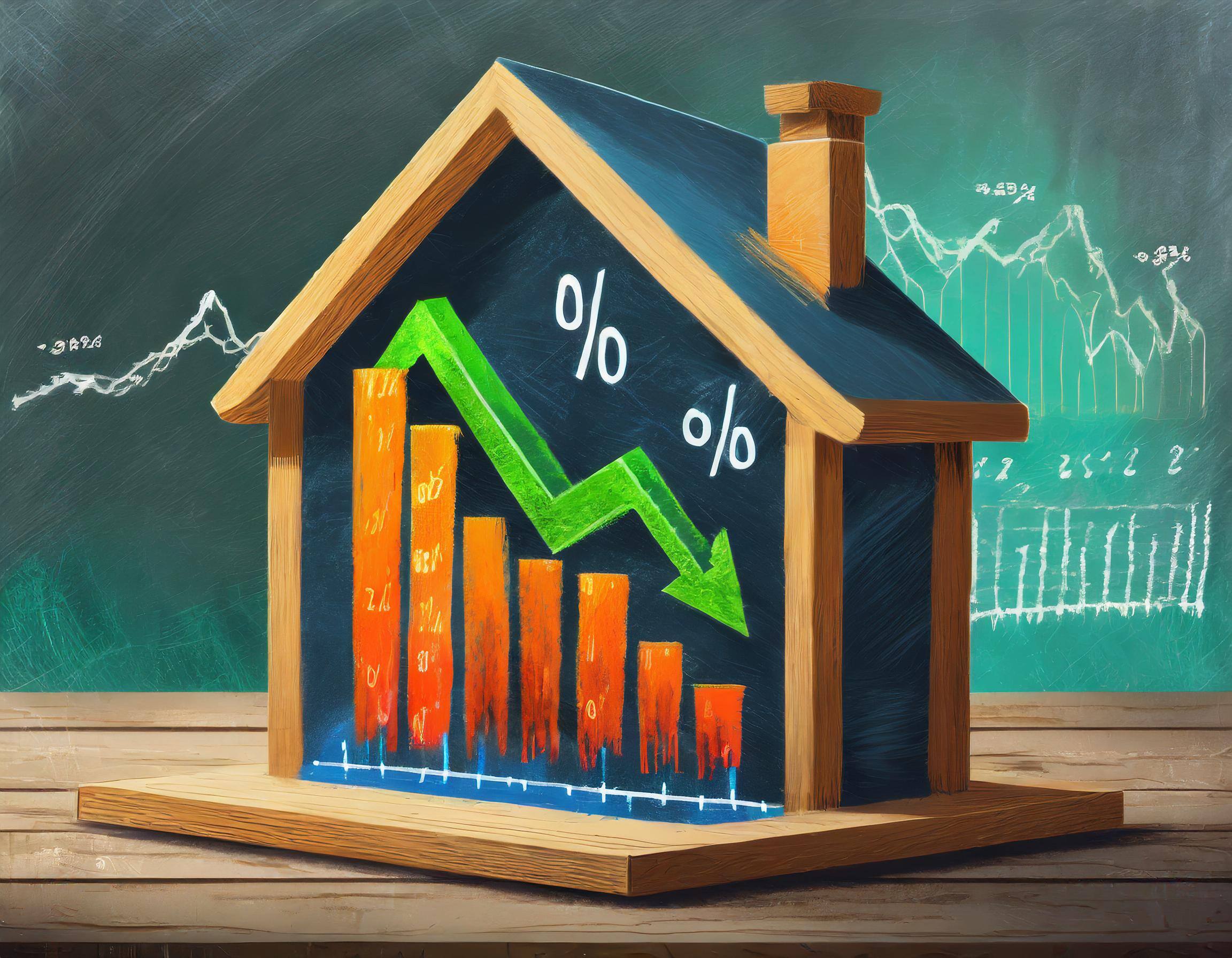How do you know which mortgage length is right for you - 15 or 30 years?
In this article, we're breaking down the differences between the 15-year and 30-year mortgage terms. We can't tell you which one is better, because, well, there is no one answer.
We've said it before, but it bears repeating: everyone's financial situation is different — gazillions of unique snowflakes. Our best advice is to read this information, then talk with your Point Equity Loan Officer to discuss the best mortgage length for you.
The Difference Between a 15 and 30-year Term.
The main differences between the two most popular mortgage terms are:
- Interest rate - lower on 15-year mortgages
- Total interest paid over the life of the loan - less paid with a 15-year
- Monthly payment amount - significantly lower with a 30-year
Mortgages with a 15-year term always carry a lower interest rate than a 30-year mortgage. The difference is typically between ½% and 1%, depending on the market. That's a mesmerizing shiny object when you're hyper-focused on getting the lowest interest rate possible.
The total amount of interest you pay is significantly less with a 15-year mortgage. Interest is charged daily on a mortgage. If you borrow the money for fewer days - you pay less interest. That also means a bigger chunk of your monthly payment goes towards the loan balance.
And, since you pay back a 15-year mortgage in half the time as a 30-year mortgage - the monthly payment is higher for the shorter period. Like a car loan, you need to pay it back over a longer period if you want a lower monthly payment.
The benefits of the 15-year term are a lower rate and total interest paid over the time you have the mortgage. And, you will own your home free and clear in 15 years. The benefits of a 30-year mortgage are lower monthly payments allowing you to afford more house.
Based on these differences, does it seem like an easy decision? Read on.
Buying Your Forever Home
What if your entire financial plan is to save your down payment and buy a home with a 15-year mortgage? Becoming mortgage-free in 15 years is an exciting goal. But you'll need to buy your forever house for that plan to work.
If it turns out that you don't stay in that home "forever," you need to take some precise steps when you buy the next house to preserve your timeline of becoming mortgage-free. Specifically, you'll need to calculate the payment for a mortgage term equal to the time remaining in your original 15 years.
Otherwise, the mortgage clock resets for another 15 or 30-year term.
Affording Your Mortgage
Calculating how much home and mortgage you can afford is the most critical step to take before purchasing. But don't mistake this snapshot of affordability for a permanent picture of your future financial health.
No one knows what their economic future holds. So, when deciding between a 15 and a 30-year mortgage term, take a step back and consider your current and future job security. Then factor in future medical issues, a growing family, and saving for higher education and retirement.
The mortgage payment you make, regardless of the term, must allow you to continue saving money. You can count on life getting all "lifey" at some point in your future. When it does, you need easily accessible savings outside of your home equity.
(Home equity is the current value of your home minus the balance of your mortgage.)
Equity Concentration
What's the one mistake people make when hyper-focusing on being mortgage-free? They rely on the growing equity in their home as a foundation of their financial security.
If (when) something happens in your life and you need that equity - you won't get it fast - or easily. Your options are to:
- Sell your home to access the equity for your emergency. It takes, at minimum, several weeks to months and cost realtor commissions and selling expenses.
- Borrow money out of the equity via a home equity loan or a cash-out refinance. It also takes 4-6+ weeks. And you must qualify for the loan and pay closing costs.
- Take money out of your company retirement account. It can take weeks, and you'll pay interest, fees, and potentially taxes, not to mention the hit to your future retirement.
Before choosing a 15-year mortgage term, consider all these points. It might be the right decision for you - if you can incorporate a strong savings plan (education, emergency fund, and retirement) while making the higher payment on a shorter-term mortgage.
The Hybrid Solution
The possibility of owning your home free and clear is the ultimate dream for most homeowners. But we can't stress enough that it should be a part of your overall financial plan - not your only financial plan.
While the benefits of the 15-year mortgage seem like the most fiscally conservative path - it may be financially risky, as we broke down above. But, what if you blend the benefits of both the 15 and 30-year mortgage terms by creating your hybrid model?
We didn't invent this hybrid model. Homeowners have been using it for years. In a nutshell, you get a 30-year mortgage term, then find out how much extra you need to pay monthly to be mortgage-free in 15 years.
It's free to pay off your mortgage balance ahead of schedule now that prepayment penalties are a thing of the past. You can make extra monthly payments but have the flexibility of just making the 30-year payment if you need to, without fear of harming your credit score.
The hybrid model allows a financial plan that includes a 30-year mortgage payment, monthly savings contributions (emergency fund, education, and retirement savings), and additional payments on your mortgage.
Pro Tip: Make sure the extra mortgage payments are marked "for principal payment only."
The "Pay Off Your Mortgage Early" Savings Account
Another option many homeowners pursue is a variation on the hybrid model. This option works best if you're financially disciplined and invest your savings wisely.
Rather than paying additional monies to the mortgage lender to pay down your mortgage quickly - invest those funds. True, this may mean paying more interest overall, but remember that you'll have a mortgage interest tax deduction to offset that cost.
There are two benefits to this plan. First, you'll have an asset that is growing in value outside of your home value. And, second, the account will grow from your continual savings and the return on your investment.
If you put that money towards prepaying the mortgage, those dollars won't earn any return for you - they'll only reduce your balance. Optimally, your money will grow more aggressively in the investment account, allowing you to pay off your mortgage faster. (in a lump sum)
The bonus is having funds available quickly if you ever need them. You won't have to qualify for a loan to access your own money or pay interest and fees. You simply withdraw the amount you need.
These savings should be in addition to savings for an emergency fund, education, and retirement. But if your goal is to be mortgage-free as soon as possible - this could be the most financially conservative option.








